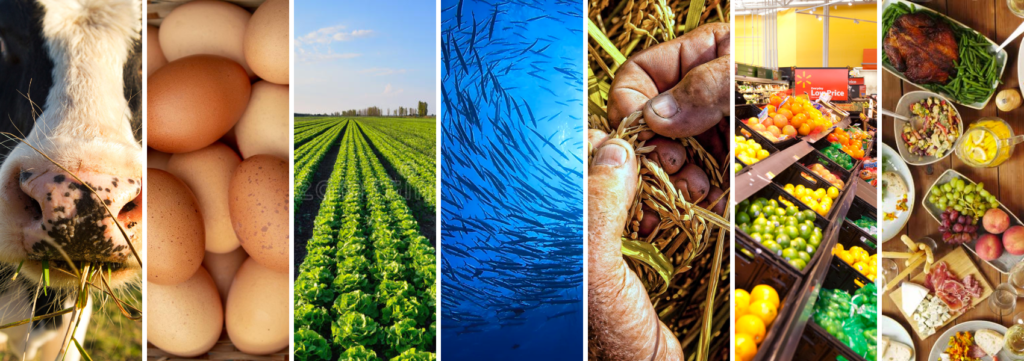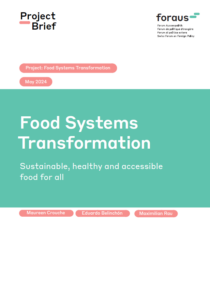Project duration
March 2023
May 2024
During two workshops in Switzerland and the UK, we exchanged with food system actors and interested citizens about how to achieve sustainable and resilient food systems in the context of international market- and regulatory interlinkages. The resulting policy brief can be accessed below and via this link.
Methodology: For this project, we used our dedicated platform Policy Kitchen to crowdsource participants’ policy ideas.
More information on ongoing project activities here.
Context:
Food systems are responsible for around one-third of CO2-equivalent emissions in Europe and greatly contribute to biodiversity loss.
Food systems policy goes well beyond looking at agriculture alone as it concerns the whole value chain as often stated “from farm to fork” and a variety of actors involved in food production, aggregation, processing, distribution, and consumption processes.
With the Food System Summit in September 2021, the United Nations, its Member States, and other non-state actors officially recognised the importance of taking a holistic approach when dealing with the agri-food sector and policies. Since then the need to transition towards more sustainable food systems has been further mainstreamed within multilateral fora.
In 2022, as a result of climate change-related phenomena such as severe droughts, combined with geopolitical turmoil initiated by the war in Ukraine initiated by Russia, food security became a major issue with the Eastern African region being most heavily affected.
While, food system activists and a majority of the scientific community generally disagree with the assumption that food system transformation jeopardises food security, opposing forces gained political momentum in 2022.
Taking into account these major elements of resilience and food security, this workshop series discussed the following questions: How can a transition towards sustainable and resilient food systems in Europe be achieved by 2030? Which national policies and transnational governance schemes are needed to achieve sustainable and resilient food systems in Europe by 2030?






